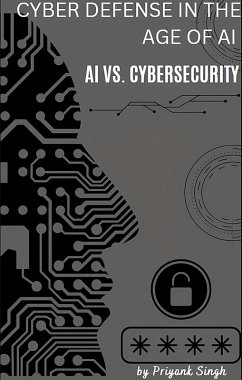The study explores the intricate legal and ethical challenges posed by AI-driven cyber-attacks. It emphasizes the necessity for global cooperation and adherence to regulations. Key issues include privacy, intellectual property rights, liability, and the need for international laws addressing AI capabilities in cyber warfare. The rise of AI-enhanced threats, such as social engineering and deepfakes, demands a combination of employee education and technical defenses. High-profile attacks like NotPetya and voice cloning scams in India highlight the evolving nature of these threats. The ethical concerns of AI in surveillance stress the importance of privacy safeguards. The study concludes that organizations must prioritize ethical considerations and privacy protection in cybersecurity strategies to counter these threats effectively
Conclusion
AI-driven cyber-attacks present unprecedented legal and ethical challenges, requiring innovative defensive measures. The study underlines the importance of international collaboration and the development of robust legal frameworks to address these challenges. AI's dual role in both enhancing and combating cyber-attacks necessitates continuous adaptation and vigilance from cybersecurity professionals
Dieser Download kann aus rechtlichen Gründen nur mit Rechnungsadresse in A, B, CY, CZ, D, DK, EW, E, FIN, F, GR, H, IRL, I, LT, L, LR, M, NL, PL, P, R, S, SLO, SK ausgeliefert werden.









